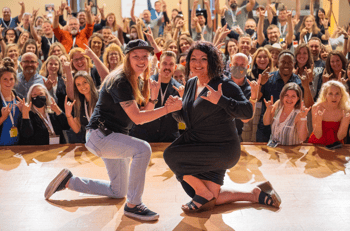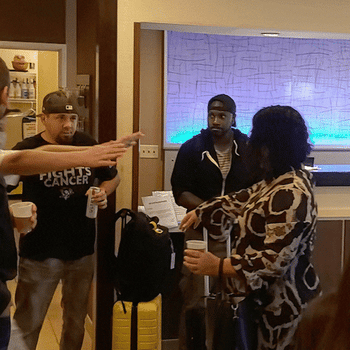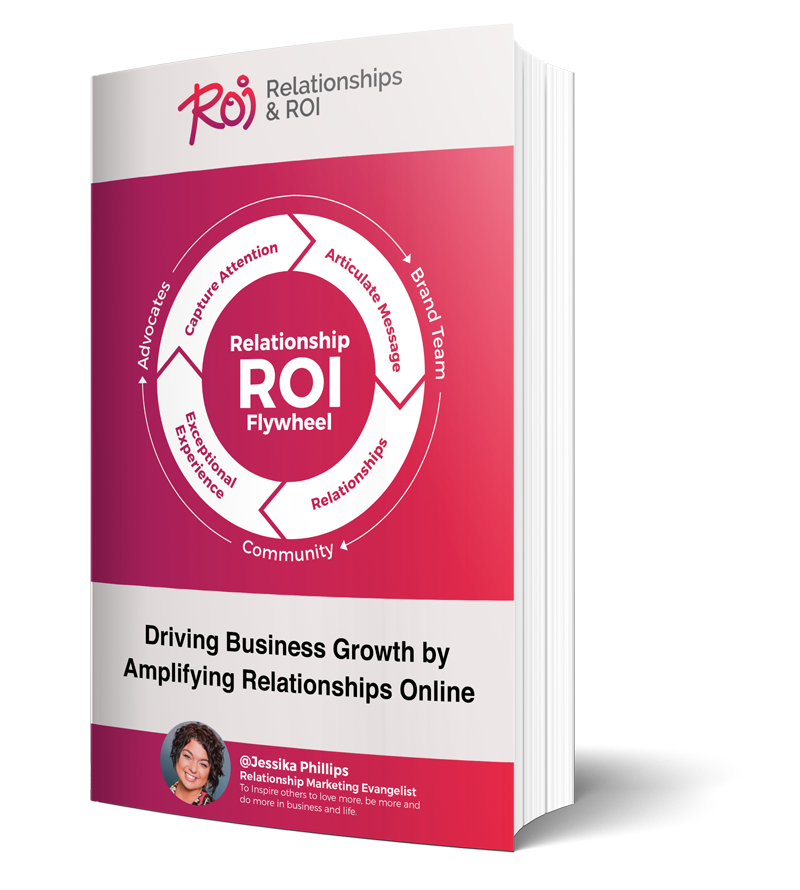The strongest businesses and leaders are those that lean into the power and importance of community. Communities are what connect us; they are what build us up and keep us together during difficult times.
Human beings are hard-wired for connection. We are drawn to creating community because we are social beings.
And oftentimes it is because of a strong sense of community that individuals rise up and become the most empowered version of themselves.
We believe that it is because of OUR community that we have become stronger as a company today than we ever have been before.

When we lean into the power of communities, we create a support system that helps to hold us through our toughest times as business owners. Not to mention, we are able to expand the reach and impact of our business more than we could ever do alone.
What does Community Actually Mean?
When we speak of community, it’s meant to describe the people who we engage with, rely on, and support.
It's the people we work with AND for, based on a shared set of beliefs and values.
In essence, a community is your digital tribe, so to speak; the people you work, laugh, learn and collaborate with.
Why Community Matters:
There are so many reasons why community matters. The reality is that communities make us better in so many different ways:
- They inspire us to learn and grow.
- They challenge us.
- They provide us with support.

Learn and grow:
The power of a community - especially a diverse one filled with people of different backgrounds, values, mindsets, and ideas - helps to expand thinking.
We are able to step out of our own comfort zone, and our own way of seeing things, and adopt a new perspective and frame. This makes us smarter, more sensitive, and more well-rounded humans.
Challenge:
There is a built-in sense of accountability within communities, which creates a sense of safety and support.
The real beauty is that these environments allow people to be challenged in ways that are safe and truly helpful to their development. It is BECAUSE of the community that the individual wants to uplevel, and the safety in knowing there is the freedom to make mistakes and try again is what pushes us all to become better.
Support:
As we mentioned above, the support is HUGE! Some days, you just can’t go at it alone. Some days, you need to be reminded of your special talents. That’s when a community truly comes in handy. They can lift you up, or help take things off your plate when you need that support.
Now that we understand why communities are so important in general, we’re able to better understand the relationship between communities and goals.
The Relationship Between Community and Goals:
When it comes to goal-setting, everyone knows that motivation is always highest right at the start. It’s important to keep that level of motivation or we end up falling off track… like those New Year’s Resolutions we set with the best intentions.
 Leaning into your community both personally and professionally can help create a structure for accountability… making that goal-setting (and achieving) a lot more fun and attainable.
Leaning into your community both personally and professionally can help create a structure for accountability… making that goal-setting (and achieving) a lot more fun and attainable.
When it comes to setting goals as a business, it’s critical that you make them SMART goals. Setting yourselves up for success means establishing goals that are specific, measurable, attainable, relevant, and timely.
In addition to defining SMART goals, it’s important to make them flexible. The pandemic was a major lesson in adaptability for all of us, forcing many brands to pivot. Not only did brands pivot their approach to doing business, but many brands also found themselves changing their products and services to the new needs of their customers.
ProTip: Don’t forget to set smaller, more palatable goals.
Small wins along the journey will help you stay the course. A strong community can help you achieve those goals by showing up and supporting those milestone goals, helping to stay on track.
How Communities Foster Adaptability:
Those brands with a strong community of supporters prior to the pandemic were able to leverage those advocates when they were mid-shift, and as a result, those brands were able to create exceptional experiences when the needs of their customers and clients changed.
 These brands were able to succeed in creating more loyalists and ultimately drive sales to sustain and support the business.
These brands were able to succeed in creating more loyalists and ultimately drive sales to sustain and support the business.
Here are some strong examples of brands that successfully pivoted during the pandemic:
- Patagonia expanded its Provisions line to include an entire marketplace of food with long shelf lives.
- Under Armour hosted a 30-day Healthy at Home fitness challenge on their MyFitnessPal and MapMyRun platforms to encourage families at home to stay physically active.
- Health and nutrition startup Vital Proteins started hosting live workouts on Instagram for their community and created a virtual running club where individuals can nominate people or organizations to receive free Collagen Water.
- The SnapBar, a photo booth rental business, pivoted and created a project called Keep Your City Smiling which sells gift boxes of high-quality products that are sourced from local small businesses in the various cities in which they operate.
And there are a number of other incredibly creative examples of companies that pivoted their business to meet the needs of the community.
The reality is that brands with strong communities hold themselves more accountable and have higher standards for themselves because they don’t want to disappoint their people.
Putting It All Together:
It’s easy to understand why the individuals and brands with the strongest sense of community are the ones that see continuous and sustained growth. It’s the power of relationship marketing at play.
 Relationships will always be the number one ROI in business.
Relationships will always be the number one ROI in business.
Relationships are what create communities, and communities allow us to pivot our business models and still thrive.
Communities let us step away from our businesses in order to take time for the things that truly matter in life. Communities are what have our back when the going gets tough.
By taking the time to invest in creating a sense of community, we’re also investing in our brand’s ability to be more flexible and adaptable over time.
Investing in creating - and genuinely serving - your community is investing in the longevity of your brand.
What do you think? Why do you think communities are so powerful? What brands do you think do an excellent job of creating a sense of community?
Share them in the comments below!




Comments